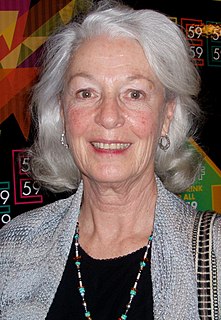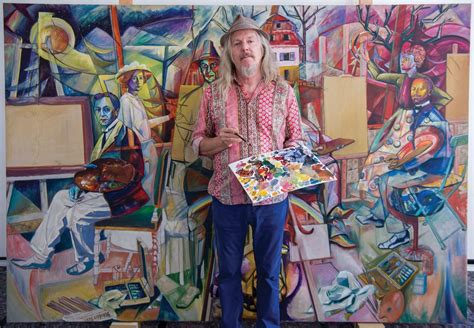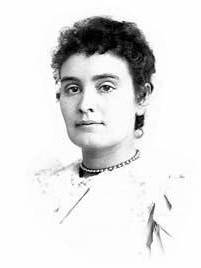A Quote by Maria Montessori
The child has a mind able to absorb knowledge. He has the power to teach himself.
Related Quotes
When we teach a child to sing or play the flute, we teach her how to listen. When we teach her to draw, we teach her to see. When we teach a child to dance, we teach him about his body and about space, and when he acts on a stage, he learns about character and motivation. When we teach a child design, we reveal the geometry of the world. When we teach children about the folk and traditional arts and the great masterpieces of the world, we teach them to celebrate their roots and find their own place in history.
We should not be content to say that power has a need for such-and-such a discovery, such-and-such a form of knowledge, but we should add that the exercise of power itself creates and causes to emerge new objects of knowledge and accumulates new bodies of information. ... The exercise of power perpetually creates knowledge and, conversely, knowledge constantly induces effects of power. ... It is not possible for power to be exercised without knowledge, it is impossible for knowledge not to engender power.
At the heart of capitalism is the unification of knowledge and power. As Friedrich Hayek, the leader of the Austrian school of economics, put it, "To assume all the knowledge to be given to a single mind... is to disregard everything that is important and significant in the real world." Because knowledge is dispersed, power must be as well.
God himself, finding he was in the midst of spirits and glory, because he was more intelligent, saw proper to institute laws whereby the rest could have a privilege to advance like himself. The relationship we have with God places us in a situation to advance in knowledge. He has power to institute laws to instruct the weaker intelligences, that they may be exalted with Himself, so that they might have one glory upon another, and all that knowledge, power, glory, and intelligence, which is requisite in order to save them in the world of spirits. (King Follett Discourse)
It is worthwhile adding that the power of the poem to teach not only sensibilities and the subtle movements of the spirit but knowledge, real lasting felt knowledge, is going mostly unnoticed among our scholars. The body of knowledge locked into and releasable from poetry can replace practically any university in the Republic. First things first, then: the primal importance of a poem is what it can add to the individual mind.Poetry is the voice of a poet at its birth, and the voice of a people in its ultimate fulfillment as a successful and useful work of art.
If all we know of mind is the aspect of mind that dissolves when we die, we will be left with no idea of what continues, no knowledge of the new dimension of the deeper reality of the nature of mind. So it is vital for us all to familiarize ourselves with the nature of mind while we are still alive. Only then will we be prepared for the time when it reveals itself spontaneously and powerfully at the moment of death; be able to recognize it "as naturally," the teachings say, "as a child running into its mother's lap"; and by remaining in that state, finally be liberated.




































